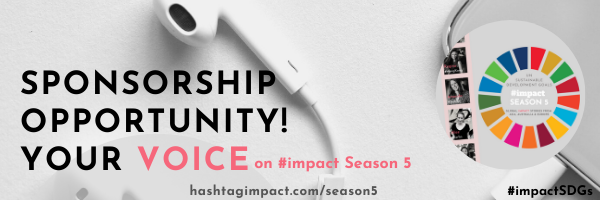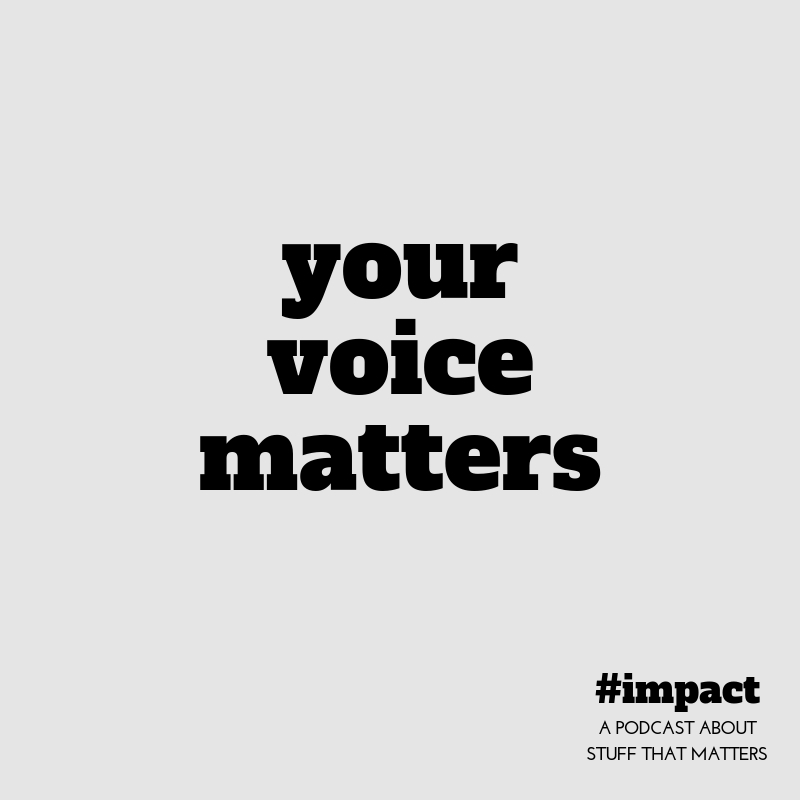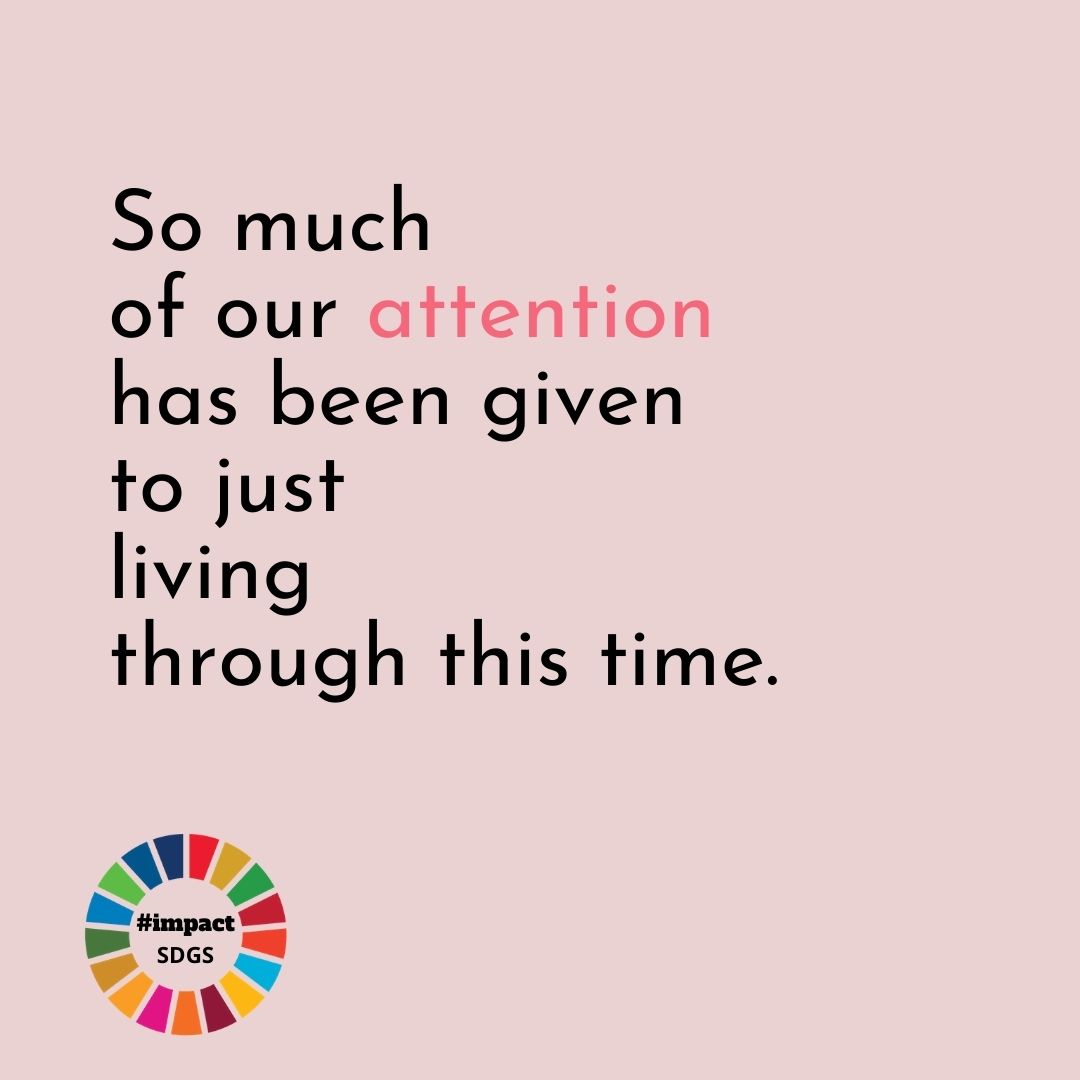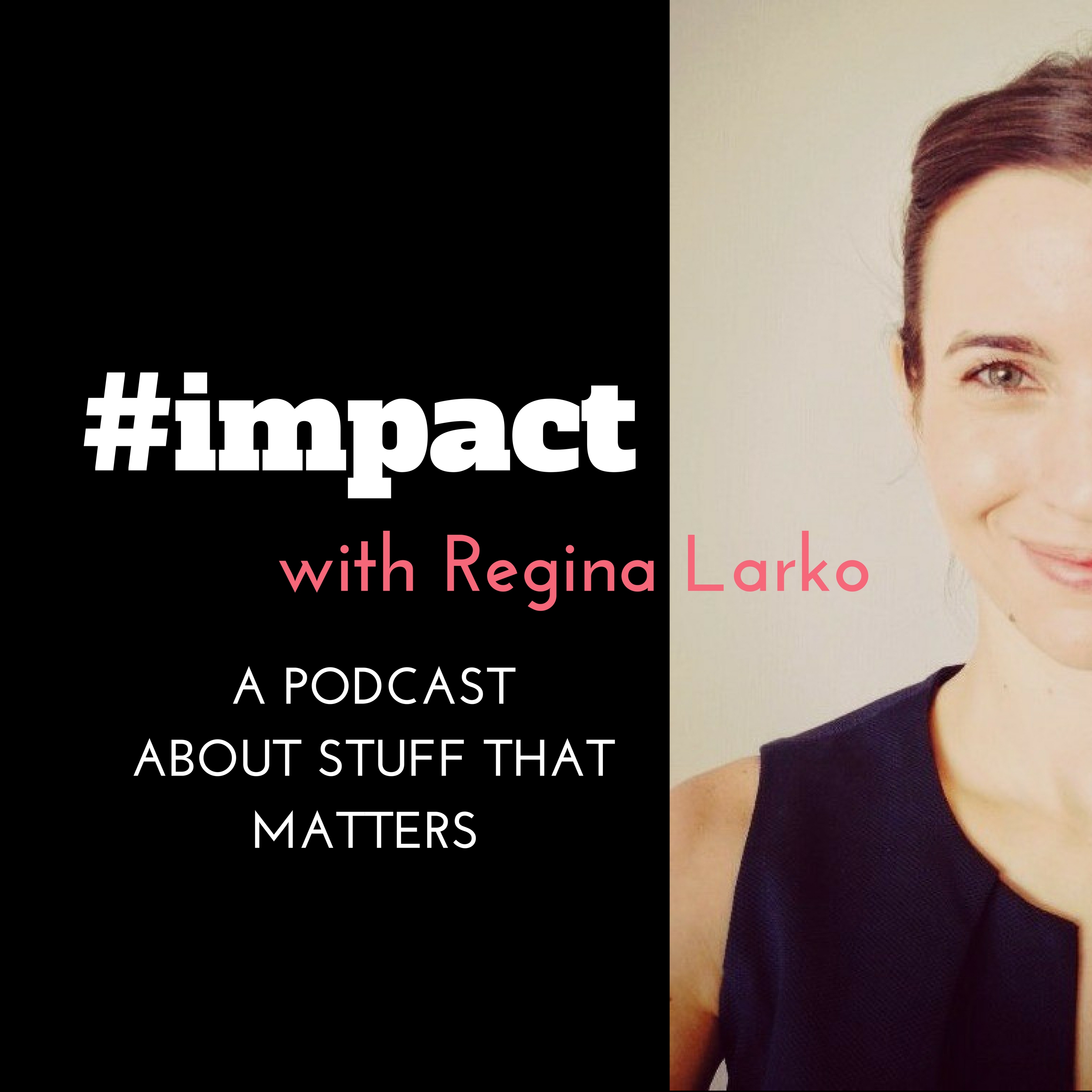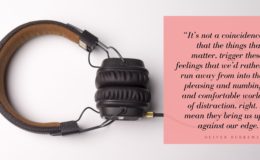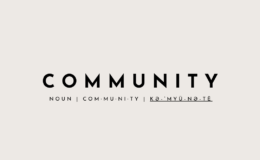Regina Larko 0:00
I am Regina Larko and you are listening to #impact Podcast Season 5, where we are celebrating changemakers tackling the Sustainable Development Goals. On today’s episode we traveled from Hong Kong to Uganda and from Sambia to the United States to discuss how three organizations are working to rewrite the story of mental health and are pushing us to acknowledge that mental health is a real global problem.
Our guests will discuss how their organizations have adapted in the time of COVID-19, how the conversations around mental health has shifted, their personal struggles during the pandemic, and most importantly, how they are making an impact.
Find more information about this season at www.hashtagimpact.com/season5.
Our first story comes from Dr. Hannah Sugarman, a clinical psychologist and clinical advisor at mind HK, a local charity committed to improving the awareness and understanding of mental health in Hong Kong’s community. Hannah shares how the pandemic has impacted mental health and how we can support and encourage honest conversations around mental health in our everyday lives.
Dr. Hannah Sugarman 1:36
Mind Hong Kong is a registered charity in Hong Kong. Our key mission is to make sure that no one has to face a mental health problem alone. Our work helps to raise awareness of mental health and to remove the stigma around it in Hong Kong. So some of the things that we do include providing comprehensive online resources for mental health support and information. These are bilingual on a range of topics. We also offer training to foster improved understanding of mental health through lots of different training sessions, again offered in English and Cantonese that are open to the public and offered privately. We run campaigns to raise awareness and destigmatize mental health. We run anti stigma Ambassador training to help people who have experienced mental health problems to share their own stories. And we also have an annual Media Award Ceremony, which promotes accurate, ethical and impactful mental health reporting. Mind Hong Kong started in 2017. It was a collaboration between the Patient Care Foundation, an existing charity in Hong Kong, and Mind in the UK, which is an incredibly well known mental health charity. Since its inception, Mind Hong Kong has partnered with multiple local and international organizations to expand mental health support in Hong Kong. The main impacts of COVID-19 on mental health. Well, the main one that we’re seeing is increased prevalence. So there was a study in Hong Kong in April 2020, that reported that the stress levels in the community have increased by 28.3%, the prevalence of anxiety has increased by 42.3%, and depression and unhappiness symptoms have doubled. But if we think about the impact of the pandemic, and the associated restrictions, this trend is not surprising at all. We’re all facing huge amounts of uncertainty, limited social support, and restrictions, which impact the things that we would usually do to look after our mental health. So all of these things unfortunately mean that we’re seeing this increase in mental health problems, that’s likely to continue for some time. I n terms of the conversation shift in social distancing might mean that people don’t have the opportunity to talk about how they’re feeling as often. When working from home or not seeing friends, it might be hard to tell if someone is struggling. And that might mean that people are suffering in silence more than ever. But on the flip side, the fact that the pandemic is a universal experience that’s affecting everyone means that more conversations are opening up around mental health. I mean, everyone is aware that the pandemic is a time of struggle in one way or another for everyone. And this means that mental health is on the agenda more than it ever has been. The challenges that we faced? Like everyone we at Mind Hong Kong have had to adapt to new ways of working in the pandemic. So we’ve been remote working, many of our in person event have been canceled or changed, we’ve postponed quite a lot of events, we’ve conducted other events and trainings remotely. And what we’ve done is reoriented our operations to reflect the mental health challenges that people are facing in the current climate with the pandemic. So for example, we developed a webinar training session that covers mental health and COVID-19. We run a campaign every year that’s around the connection between physical exercise and mental health, which is called Move It for Mental Health, and this year our campaign focuses on moving your body outside in nature. And our world Mental Health Day campaign in 2020, focused on your emotions behind the mask. So we’ve tried as best as we can, to continue to deliver our mission in the face of obstacles, and we continue to work on improving access to mental health support and information and addressing the stigma, despite the restrictions that we are faced with. Changes that might become permanent? Training has always been a big part of our operations, and this previously would have involved in person training events, and although we would love to return to these eventually, we’ve had a really great response to our webinars and we expect that this format will actually have enabled some people to engage who may not otherwise have been able to before because of time constraints or travel restrictions, etc.
Regina Larko 6:03
Thank you, Hannah, for making a difference. For our next story, we’re traveling to Uganda and Zambia, where Sean Mayberry, CEO and founder of StrongMinds, it’s working to provide treatment to the 66 million women silently struggling with mental health problems in Africa. Sean shares how certain strategies adopted by StrongMinds during COVID-19 will continue to be used post the pandemic to allow African women to easily access much needed resources. A small silver lining to this difficult time.
Sean Mayberry 6:44
StrongMinds is a social enterprise that focuses really on one of the most pervasive and debilitating mental illnesses in Africa. It’s also the number one cause of disability for women on the subcontinent. And of course, we’re talking about depression. We use a community based model of talk therapy to help these women to reduce their current depressive episodes, and really more importantly, to prevent future cases of depression throughout their entire lives. Because our model of therapy does not require the use of doctors or nurses, who, of course, are in such short supply in Africa, we believe our model is highly scalable. And scalability is so important because in Africa, there’s truly a public health crisis, a depression epidemic in which nearly 66 million women are afflicted with this mental illness, yet they have no access to treatment. For StrongMinds, we started in 2014, we’ve now treated nearly 80,000, women of all ages in Uganda and Zambia, with about 80% of them becoming depression free. You know how StrongMinds was founded. It’s a great longer story, but just in brief, I really stumbled across a randomized control trial that showed a type of therapy that was successfully tested to treat depression in Africa, and then that RCT sat on a shelf for over 10 years, we took it off the shelf, and are bringing it to scale. We are the only organization in Africa trying to scale a solution to depression, and that’s our mission. COVID-19 has just been detrimental as can be expected or understood. You know, we are definitely seeing increased levels of depression. In normal circumstances we see about one in four women in Uganda or Zambia, suffering depression, certainly that number has increased, since the pandemic, we see higher levels of anxiety, which is understandable as people are, are really, you know, caught in the lockdown scenario and unable to work or to take care of their families as well as they would like, so really the anxiety increases and then a lot of social isolation, again from a lockdown. And we know that the physical and mental impacts of social isolation is very extreme, so COVID-19 is having really detrimental effects on not just the physical health, but on the mental health of people we serve in Africa. There’s definitely more conversation now, I like to think of it as a pendulum and the pendulum has kind of inched forward in terms of greater awareness for global mental health. You know, certainly a lot more than it was eight years ago when we started. Many of our donors and stakeholders ask us about, you know, what is the mental health situation of the people that we’re serving, so there’s a greater interest and just understanding of how important good mental health is and how difficult it is to not have good mental health and to be suffering. So for us as a discussion is definitely increasing, the pendulum is moving. We unfortunately today have not seen that change in momentum of results in increased funding for mental health in Africa, which is still incredibly limited, but we’re optimistic for the future. The typical model for StrongMinds is we conduct group talk therapy to treat depression where people come together roughly our groups can average between 12 and 18 people with one or two group leaders, really sitting around in a circle so quite close with the lockdown with COVID in all African countries, including Uganda and Zambia, we could no longer conduct our groups in person. We could no longer walk through slum areas where we work because we try to reach the most impoverished, we could not walk through those slums and find and screen new individuals. So we really had to develop an entirely virtual model of finding, screening, patients and conducting group therapy. Ultimately, we developed a brand new curriculum for teletherapy. So we’re conducting our groups now on the phone on dumb phones, not smartphones, smartphones being incredibly, well, just very difficult for our constituents to to own and to purchase. But we’re conducting teletherapy sessions, now those groups are smaller. And we’re also able to go through the slum areas and find individuals using radio spots, social media chatbots, and some of StrongMinds, volunteers who do go house to house but at a socially distance version. So it’s been a huge effort for us to move into the teletherapy space, but we’re seeing great results and really optimistic about its future with StrongMinds. Now, at the beginning of 2020, the word teletherapy wasn’t even on our lips, and at the end of 2020, or now at the beginning of 21, it’s an incredibly important tool for ours that we’re going to continue to invest in and to make better, we definitely see teletherapy as being one of the approaches that we can use in our countries in Africa, almost certainly alongside in person group therapy where that’s possible in light of the the COVID-19 situation. So it’s a new opportunity for us to reach deeper and more widely in geographies. And to really just, you’ll find new patients that we wouldn’t to be able to find before so we’re really excited and it’s just a huge silver lining for us that’s coming out of the pandemic. So we’re just incredibly grateful for the development of teletherapy by our team.
Regina Larko 11:43
Wow, thank you for everything that you do. Sean. Our final guest is Janice Whitlock, Senior Advisor at the Jed Foundation, a nonprofit that protects emotional health and prevent suicide among teens and young adults in the United States. Janice not only shares how Jed has pivoted to meet the needs of teens and young adults in the US as they struggle to adapt to a more isolated way of life, but also shares how her life has changed to highlight how everyone, no matter what age , has been challenged by the pandemic.
Janis Whitlock 12:25
My name is Janis Whitlock and I’m a senior advisor for the Jed foundation as well as a scholar who studies adolescent and young adult mental health and well being with a focus on self injury and suicide prevention. I also have expertise in the areas of adolescent and young adult development broadly conceived reproductive health, sexual violence prevention, connectedness and resilience. My work at the Jed foundation allows me to draw on all of these areas of passion and expertise to assist youth and adults. In addition to my role at Jed, I work at Cornell University as a research scientist. I’ve worked in the area of health and well being particularly among young adults and adolescents and women for over 30 years. There’s never been a time that I didn’t want to do work that served a larger mission in the world. I started out after college working in women’s reproductive health as a clinical assistant, and then as a sexual health educator, and then as a program developer and evaluator. I went back at some point to get a Master’s of Public Health so that I could do more program development and evaluation in these areas. I became really interested in resilience, connectedness and thriving along the way, and decided to go back for a PhD in human development with a focus on adolescent development and resilience. So I have worked in these areas, since I finished that degree in 2003. What are the main impacts of COVID-19 on mental health is the question? This is a big question. There are a number of effects of COVID on mental health, many of which are still pretty unclear. In the short term, the mental health impact that comes with disrupted lives, plans, income relationships, and daily routines are really evident. We are seeing skyrocketing rates of anxiety, depression and related symptoms all over the world. I work in the area of non suicidal self injury, for example, and I’ve had, definitely, had an increased number of requests for training and resources, since there are just a lot of people who are struggling to cope. And then there’s the mental health impact of having oneself or a loved one affected by COVID directly. Having loved ones die, especially in quarantine or isolation where other family members can be with them, or having them be really sick for long periods of time, causes a whole wide array of secondary stress challenges, many of which result in compromised mental health for loved ones, and caretakers. And then there’s been directly affected especially if one worries about your own mortality or has to cope with long hauler symptoms, you know, the symptoms that kind of keep popping up with people who’ve had COVID that seem to be unrelated to COVID directly, but are causing a lot of secondary physical effects, few of which are well understood or easy to treat. For young people, there’s a hopefully temporary loss of purpose and focus in some cases, everything in a young person, especially young adults, and and young people in late adolescence, urge them to be out in the world creating their lives, making connections with other people, investing in work or school. So having these things be entirely on hold, or only partially intact stands really in direct conflict with what feels most important to them. So a lot of them are having to deal with anxiety that’s coming from just feeling driven to do things in the world, but not being able to do them. linked to this and true for a lot of people, especially individuals who live alone, or who are not in a relationship is, and not living close to the person they’re in relationship with, is the issue of touch. Humans typically seek and receive touch in a variety of ways, you know, from simple hugs, or just gestures touching a person’s arm or, or or shoulder when you’re talking to the more romantic kinds of touch, we’re all aware of, thousands of thousands of people have gone without even modest amounts of touch for long periods of time, something that’s widely known to have mental health impact. So COVID is definitely not helping in this front. And then lastly, is the fallout that we can’t yet anticipate. So much of our attention has been given to just living through this time to just getting through this time. So and as and compounded in a lot of cases by all of the other changes that are going on in the world. So for example, here in the United States, COVID has been compounded by long standing, but boiling over the top social justice tensions, a tumultuous political backdrop, and huge economic downturns that have left millions of people without adequate food and shelter. So we’re just one country in the midst of many countries also facing unusual stressors above and beyond COVID. So for all of us, all of us, COVID is happening against the backdrop of a rapidly changing climate as well that desperately needs coordinated attention, which is incredibly difficult in the midst of a global pandemic, and related political and social upheavals. So all of these factors combined to create a mental health landscape that’s going to be exceptionally challenging, I anticipate, for a long while after the COVID pandemic is finally remedied with vaccines and vastly improved treatment.
Question, have you seen the conversation around mental health shift during the pandemic? Oh, absolutely. The conversations around mental health have been changing over the last few years in general, as more and more people recognize both mental health challenges, the role that stigma plays in getting people services and the need for more services. COVID, however, has amplified both the effects and the deep awareness that we have to do something to actively counter these negative health impacts. It’s urgency and acute nature has commanded the gaze of thousands or millions, even of organ individuals and organizations around the globe, whose skills are well positioned to direct and a spotlight on both the challenges and the range of available resources we have or need to create. So things like tele therapy, free and low cost mental health services, expanded assessment efforts and avenues and vastly wider news coverage of both the challenges that mental health is posing in this time and resources and techniques for noticing and responding to people in one’s own life have all blossomed in significant ways since the onset of COVID. You know, it’s hard to know what’s going to happen once the pandemic acuity has ended but I anticipate that much of the knowledge and skill and resources that we’ve identified and used in this time will continue to be available and leveraged.
COVID’s the main topic what challenges have I faced? I’ve personally faced a lot of the same challenges everyone else has faced largely related to figuring out new ways for staying sane and balanced in this unusual time. With regards to our organization, Jed has faced a lot of the same kinds of challenges other organizations face, leaving the office and moving home has mandated a whole new set of arrangements and routines. Work life balance has become a major issue for anyone in organizations has worked moved home and in some cases offices have been set up in in master bedrooms or, I shouldn’t say master bedrooms, they’ve just been set up in people’s bedrooms. The intense desire to maintain connection with others while simultaneously needing more than the usual amount of time to just be quiet has mandated new routines and practices and ways that are, you know, need to be to be synced with other other people in the same organization. And then, of course, individuals with children who are engaged in online schooling face even more challenges in in work life balance, because of the fact that all the typical supports they have are, in many cases, just been radically altered.
Are there any changes you’ve made because of COVID-19 that will become permanent? I feel more strongly than ever about my mission to serve the well being of all of us. I’ve become acutely aware that we live in transformational times, and that there’s no return to normal after this. I hope to stay engaged and flexible in meeting needs, personally and more globally, as I go forward.
Regina Larko 20:56
Thank you for making an impact Janis. We need more people to act if we want to achieve sustainable development goal three, ensuring healthy lives and promoting wellbeing for all at all stages. An organization that we are huge fans of that empowers people to act is our season five sponsor LocalMotion. LocalMotion’s purpose is to help charities and social enterprises make more impact. How do they do that you wonder? Well, they are taking skilled professional projects of these organizations plates, like when they worked with Cathy and Hatsya, two volunteers that thanks to LocalMotion, supported Mind HK, with their Help Me initiative. Help Me is a virtual assistant which uses AI to make access to support and information on mental health easier. Cathy and Hatsya collectively donated more than 5000 Hong Kong dollars worth of skills, and it really made an impact. If you are also a busy changemaking social enterprise or charity that needs support with a project, reach out to LocalMotion at getinvolved@localmotion.hk. They are a fantastic team, I have worked with them myself before finding amazing support and volunteers for projects on #impact. So just you know, drop them an email at getinvolved@localmotion.hk, to learn about how they can help you. And if you want to become part of a bigger story of social change by donating your professional skills just like Cathy and Hatsya did, please visit www.localmotion.hk.
What does making an impact mean to you? That is what we asked today’s guests, we always love to ask this question. And we also ask them who inspires them in the way they tackle the Sustainable Development Goals? And what could we all do right now to make the world a better place? Let’s hear from them.
Dr. Hannah Sugarman 23:24
To me, making an impact means helping people to see things differently. So who inspires me in the way they’re tackling the Sustainable Development Goals. There is a scheme in Zimbabwe known as the friendship bench scheme, which was started after recognizing a huge treatment gap for people experiencing mental health problems there. There were 10 psychiatrists for a population of 13 million and so what they did was they trained up community volunteers to deliver evidence based talk therapy focused on problem solving, on benches outside in discreet, safe spaces in the community. And because the volunteers were local elders, mostly, they were using local knowledge and concepts to guide the approach. So this was so successful, they did research and it proved to really, really reduce symptoms for the people who were experiencing depression who went to see these workers. This approach has now been adopted across the globe and it’s just such a good example of culturally sensitive, sustainable and accessible support for mild mental health problems and I think this is just something that’s so inspirational. What could everyone do right now in this second to make the world a better place? There’s this idea that when we ask “how are you?” we’re so used to hearing “fine” or “good” as an answer and so when we’re catching up with friends or colleagues, I think it’s really important to try and see behind the “good” and the “fine”. Really, really check in with people to support and encourage an honest conversation about mental health, so that you can find out if they are struggling or if they truly need help. We did a campaign around this in 2019, which was called How Okay Are You. And with the extra burdens that we’re facing due to COVID-19 it’s important, more than ever, now to look out for each other. So the thing that I would like everyone to do is make sure that we’re truly checking in with everyone and when we ask them how they are, we really want to see behind that fine.
Holly Elliot 25:38
To me making an impact means…
Sean Mayberry 25:42
means reaching millions of people in need; so 66 million people with depression in Africa and we want to reach them all. If we only reach a few 100,000 at the end of our life at StrongMinds, that’s failure,
Holly Elliot 25:53
Who inspires you in the way that they’re tackling the Sustainable Development Goals?
Sean Mayberry 25:58
Jimmy and Rosalynn Carter at the Carter Center who do so much work to really tap into so many of those 17 sustainable goals. I love the Carter’s I was a graduate fellow there for a long time, and I just so admire their work.
Holly Elliot 26:11
What could everyone do right now, in the second, to make the world a better place?
Sean Mayberry 26:15
Just to recognize that mental health is as important as physical health, talk about it, talk about it, don’t let the stigma you know, keep mental health silent. Ask somebody, how are you feeling? Tell somebody how you’re feeling. Let’s really just open the discussion on mental health.
Janis Whitlock 26:32
To me, making an impact means making decisions with global impact in mind. I am intrinsically and deeply aware that we live in a very interconnected and fragile world and that what I do, even if it doesn’t feel like it matters to anyone else,actually does matter. I want to keep this in mind at all times. Who inspires me? Of course, Greta inspires me; she’s an enormous role model. It’s not just because of her intense and powerful focus, but mostly, she’s a harbinger of a new age and a new generation in which I have tremendous faith. And then what can everyone do right now in this second? I love this question. You know, what everyone could do right now in this second, and in the next second, is they could care. No, I mean, really care. The biggest impediment to meeting our sustainability goals is lack of authentic empathy for other people, species in the planet, whether it’s other individuals or their groups that feel like they’re different, other nations, or other species, or you know, the earth as a whole. Economic, political and social investment follows what we value, always, it follows what we care about. So when we start to really deeply care about ourselves and everybody else around us, we will see resources dedicated to protecting all of us and this beautiful planet we live on. If there was enough care, this would not be an issue, we’d have all of the resources that we need to address the the challenges that we’re facing. I see the the sustainability challenge, that we’ve, the biggest sustainability challenge that we’ve, that we face, as one of not enough care.
Regina Larko 28:18
Okay, I have, I have goosebumps now, listening to these powerful calls to action from our amazing guests that we invited to share their stories with us today. Huge thanks to them, we value your insights to let us learn, to let us learn how to care, how to do better, how to show up for mental health within our communities. Thank you so much to Mind HK; reach out to them at www.mind.org.hk, thank you to StrongMinds, reach out to them at www.strongminds.org, and thank you to the Jed Foundation, reach out to them at www.jedfoundation.org.
The last and very personal big thanks goes to a very special woman who has been helping to put this beautiful episode together. Thank you to Avani Laroia, who is the Production Associate of #impact podcast and who has been the driver behind this episode. It’s such a joy to work with you on this topic! And we can assure you that we will keep caring about mental health and we’ll bring you more episodes on this topic as well.
In the meantime, please stay up to date with our news and head over to our beautiful newsletter at www.hashtagimpact.com/subscribe, you will get notified when we air our newest episodes, you will get a look behind the scenes, and also, as a thank you, we are sending you a beautiful encouraging motivation boost to keep you inspired on your own change making journey. So please head over to www.hashtagimpact.com/subscribe to join our community. Thank you so much for today. Talk to you soon. Bye.
Helpful resources to educate yourself on the Sustainable Development Goals
Get notified when our next episode airs!
